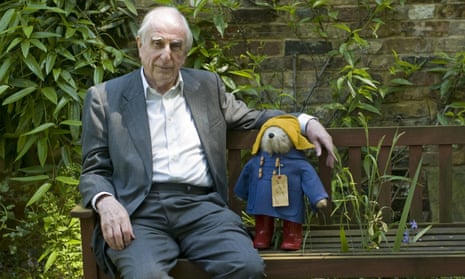Paddington has been the Winnie-the-Pooh of our generation. There have been other iconic bears over the generations, but those two stand side by side, one in Ashdown Forest and the other at Paddington station. For those who were born in the later 20th century, Paddington is the one that they remember. And what’s wonderful about it is that it’s rather strange to have a bear who is so elegant in his speech, so polite and kind, yet who unleashes such chaos. That’s what children respond to.
But he’s not just a charming bear. It’s more than that. I think he reflects the best of us: we all get into scrapes, and through his innocence and kindness he relates to everyone – adults as well as children.
And at this moment in history he represents more: he’s an immigrant from Peru who is found on a station platform with a label around his neck that says: “Please look after this bear. Thank You.” What’s extraordinary is how powerful that story is today. We only have to see that bear to see the predicament of a Syrian child. The Brown family adopted him; it was a messy adoption but it gave the bear a home. It delivers a very strong message about how we’ve grown away from the kindness to which we once aspired.
My grandfather was a Belgian poet who moved to England just before the first world war, and I grew up with the story of how, at the beginning of the war, the country took in 250,000 Belgian refugees. Belgium had been invaded and they got in little boats and big boats just like today’s refugees. And people took them in. It might have been expensive and difficult, but it was what Britons had to do and this, in a simple way, is what the Paddington stories tell us.
We once went to dinner with Michael Bond and his wife, and he said: “There will be six of us for dinner.” The other two were his guinea pigs. He was very, very passionate about them – and they weren’t locked away, but were running around the house. Writers are at their best when they are writing from what they are: Michael was charming and sweet and gentle – just like Paddington.
